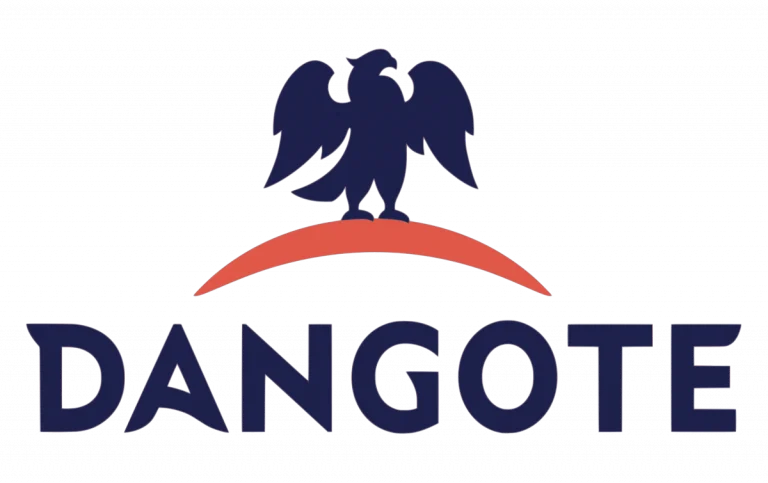Business
Indian Refiners Abandon Russia For Nigerian Crude, As Dangote Refinery Relies On US

India Refineries have abandoned Russian crude for Nigerian crude, while domestic refiner Dangote Refinery relies heavily on West Texas Intermediate crude from the United States of America.
This followed a recent sanction threat by US president Donald Trump on India over continued patronage of Russian crude.
According to Reuters, industry sources said that Indian Oil Corporation recently bought one million barrels of Nigeria’s Agbami crude for September 2025 delivery in a tender awarded to global trader Trafigura.
Also included are one million barrels of Angola Girassol, one million barrels of US Mars, three million barrels of Abu Dhabi Murban, and two million barrels of Nigerian oil, according to Reuters.
READ ALSO:‘My Eyes Dey Your Body’: Drama As Portable Professes Love For Regina Daniels
The report noted that the purchase is part of a broader sourcing spree that has seen Indian refiners secure millions of barrels from non-Russian sources post July 2025.
Meanwhile, Indian refiners secured purchases of Nigerian crude grades; the $20bn Dangote Petroleum Refinery in Ibeju-Lekki, Lagos, is relying on around 60 percent on US and other imoorts to feed its processing units.
Data showed that the refinery imported an average of 10 million barrels in July 2025, saying it was increasingly relying on the US for its feedstock despite the naira-for-crude deal with the Federal Government, which kicked off in October last year.
According to Reuters, the Indian Oil Corp and Bharat Petroleum have bought a million barrels of non-Russian crude billed for delivery in September and October after the US pressured India to halt purchases from Russia.
READ ALSO:
Indian state refiners had been largely absent from the Nigerian crude market spotlight since 2022; they have in the past concentrated on Russian crude amid the Russian-Ukrainian war. However, the Indian refiners paused Russian purchases in late July 2025 after pressure from US President Donald Trump.
On the part of Dangote Refinery, data from commodities analytics firm Kpler showed that in July, US barrels accounted for about 60 percent of Dangote’s 590,000 barrels per day of crude intake, with Nigerian grades making up the remaining 40 percent.
In July, the Dangote refinery’s crude imports surged to a record 590 kbd—driven largely by US barrels overtaking Nigerian supply for the first time—amid ongoing domestic sourcing challenges, Kpler reports.
“While WTI has held a significant share in Dangote’s import slate since March, this is the first time US crude has overtaken Nigerian supply—a shift driven by several factors,” Kpler stated.
Business
NNPCL Announces Restoration Of Escravos-Lagos Pipeline

The Nigerian National Petroleum Company Limited (NNPCL) has announced the complete restoration of the Escravos-Lagos Pipeline System (ELPS) in Warri, Delta State, following the recent explosion on the asset.
The chief corporate communications officer (CCCO) of the nation’s oil company, Andy Odeh, in a statement, said that the pipeline is fully operational, reiterating the company’s resilience and commitment to energy security.
“NNPC Limited is pleased to announce the successful restoration of the Escravos-Lagos Pipeline System (ELPS) in Warri, Delta State.
READ ALSO:Fuel Price Cut: NNPCL GCEO Ojulari Reveals Biggest Beneficiaries
“Following the unexpected explosion on December 10, 2025, we immediately activated our emergency response, deployed coordinated containment measures, and worked tirelessly with multidisciplinary teams to ensure the damaged section was repaired, pressure-tested, and safely recommissioned.
“Today, the pipeline is fully operational, reaffirming our resilience and commitment to energy security. This achievement was made possible through the unwavering support of our host communities, the guidance of regulators, the vigilance of security agencies, and the dedication of our partners and staff.
“Together, we turned a challenging moment into a success story, restoring operations in record time while upholding the highest standards of safety and environmental stewardship.
“As we move forward, NNPC Limited remains steadfast in its pledge to protect our environment, safeguard our communities, and maintain the integrity and reliability of our assets. Thank you for your trust as we continue to power progress for Nigeria and beyond,” the statement read.
Business
Dangote Unveils 10-day Credit Facility For Petrol Station Owners

The Dangote Group has announced a 10-day credit facility backed by a bank guarantee for petrol station owners and dealers, alongside free direct delivery and other incentives, as part of a new supply arrangement.
The company disclosed this in a statement posted on its official X handle on Tuesday, inviting petrol station operators across the country to register to benefit from the offer.
According to the statement, participating dealers will enjoy “a 10-day credit facility backed by a bank guarantee,” with a minimum order requirement of 5,000 litres.
“Our free direct delivery service will commence soon,” the group said, adding that the offer is open to “all petrol station owners and dealers.”
READ ALSO:Dangote Sugar Announces South New CEO
The Dangote Group further called on operators to register their stations to access the supply arrangement.
“Register your petrol stations today to benefit from our competitive gantry price,” the statement read.
The company also disclosed that petrol supplied under the arrangement will be sold at a gantry price of ₦699 per litre.
For enquiries, the group provided the following contact numbers: 0802-347-0470, 0809-324-7070, 0809-324-7071 and 0203.
READ ALSO:Dangote Refinery Dispute: PENGASSAN Suspends Strike After FG Intervention
The announcement follows a recent petrol price adjustment by the Dangote Petroleum Refinery.
The PUNCH earlier reported that the refinery reduced its ex-depot petrol price from ₦828 to ₦699 per litre, representing a ₦129 cut or a 15.58 per cent reduction.
An official of the refinery, who spoke to PUNCH Online on condition of anonymity, confirmed the adjustment, saying, “The refinery has reduced petrol gantry price to ₦699 per litre.”
The new price reportedly took effect on December 11, 2025, marking the 20th petrol price adjustment announced by the refinery this year.
Business
JUST IN: Otedola Sells Shares In Geregu Power For N1trn

Billionaire businessman, Femi Otedola, has sold his majority stake in Geregu Power Plc for N1.088 trillion in a deal financed by a consortium of banks led by Zenith Bank Plc.
The Nigerian Exchange, NGX, made this announcement on Monday.
Otedola’s Amperion Power Distribution Company Ltd reportedly held nearly 80 percent of the power generating company.
READ ALSO:N200b Agric Credit Dispute: Appeal Court Slams NAIC, Upholds First Bank Victory
With this new development, Otedola, Chairman of First Holdco Ltd, parent company of First Bank of Nigeria Plc, will reportedly now concentrate on expanding his interest in the Nigerian banking sector, although he still retains some shares in Geregu.
Otedola is said to currently own 17.01 percent of First Bank — its single largest shareholder since the bank was established in 1894.

 News4 days ago
News4 days agoBREAKING: Anthony Joshua Involved In Road Accident

 News5 days ago
News5 days agoEx-Edo Gov Obaseki Reacts As His Cousin Is Beaten, Stripped

 Politics4 days ago
Politics4 days agoYou’re Not 001 – Wike Rubbishes Claims Of Fubara Being APC Leader In Rivers

 Metro5 days ago
Metro5 days agoObaseki Beaten, Stripped In Edo

 Politics4 days ago
Politics4 days agoWike Speaks On Defecting To APC

 Politics4 days ago
Politics4 days agoJUST IN: INEC Excludes PDP From Ekiti Governorship Election

 News4 days ago
News4 days agoNAF Neutralizes Bandits At Turba Hill, Kachalla Dogo Sule Camps

 News4 days ago
News4 days agoDoris Ogala: How Pastor Chris Knelt Before Church, Begged For Forgiveness [Video]

 Politics4 days ago
Politics4 days agoGo To Hell, You Didn’t Pay My School Fees – Wike Hits Seyi Makinde

 News3 days ago
News3 days agoNigerian Army Finally Reveals Details Of US Military-led Airstrikes In Sokoto




















